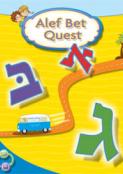- Home
- Play & Learn Home
- Online Enrichment
- Experience Modern Israel
- Israel It's Complicated
- Jewish and Me
- Jewish Holidays Jewish Values
- Jewish Values in Genesis and Jewish Values in Exodus
- Min Ha’aretz
- Our Place in the Universe
- Simply Seder
- The Prophets: Speaking Out for Justice
- Making T'filah Meaningful
- Make, Create, Celebrate
- Yom Haatzmaut Resources
- Hebrew Apps
- About The OLC
- What is the OLC?
- Introduction
- Get Started
- Resources
- OLC Content
- Parent Materials
- See My OLC Classes
- Store
8 Better Ways to Ask "What Did You Do this Summer?"
Written by Behrman House Staff, 10 of August, 2015
In just a short month many learning centers will be full of students and the teacher will be asking that very same question as the year before, "What did you do this summer?"
How can we move beyond questions that simply elicit a check-list response and find ones that generate thoughtful or even surprising responses?
Teacher and blogger Jenny Froehle recently tackled this concept and offers these 8 ways to ask instead:
- Not "What did you DO this summer?" but "What did you LEARN or LEARN TO DO this summer?"
- Not "Tell me about your family" but "What are each of the people in your family good at?" or "What skills do you have that no one else in your family has?"
- Not "Who are your friends?" but "How do you make friends?"
- Not "What do you like?" but "What do you want to know more about?"
- Not "What is your learning style?" but "Where and from whom do you learn?"
- Not "Tell me about your pets, house, etc." but "Tell me about what's on your bookshelf. iPad, app list, (etc.) and what does it tell me about you as a person?"
- Not "What worries or upsets you?" but "What do you do when you are faced with a really interesting or tough-to-solve problem?"
- Not "What do you want me to know about you?" but "What do you want to world to know and think about you now and in the future?"
Rephrasing your questions offers an opportunity to receive deep and useful feedback from students that can help educators pin-point learning styles,and also discover ways to engage them more deeply in the coming year.
You can read Froehle's full blog post here.
Do you have a different approach to help students engage deeper at the start of the school year? We'd love to hear it and share with your colleagues!


